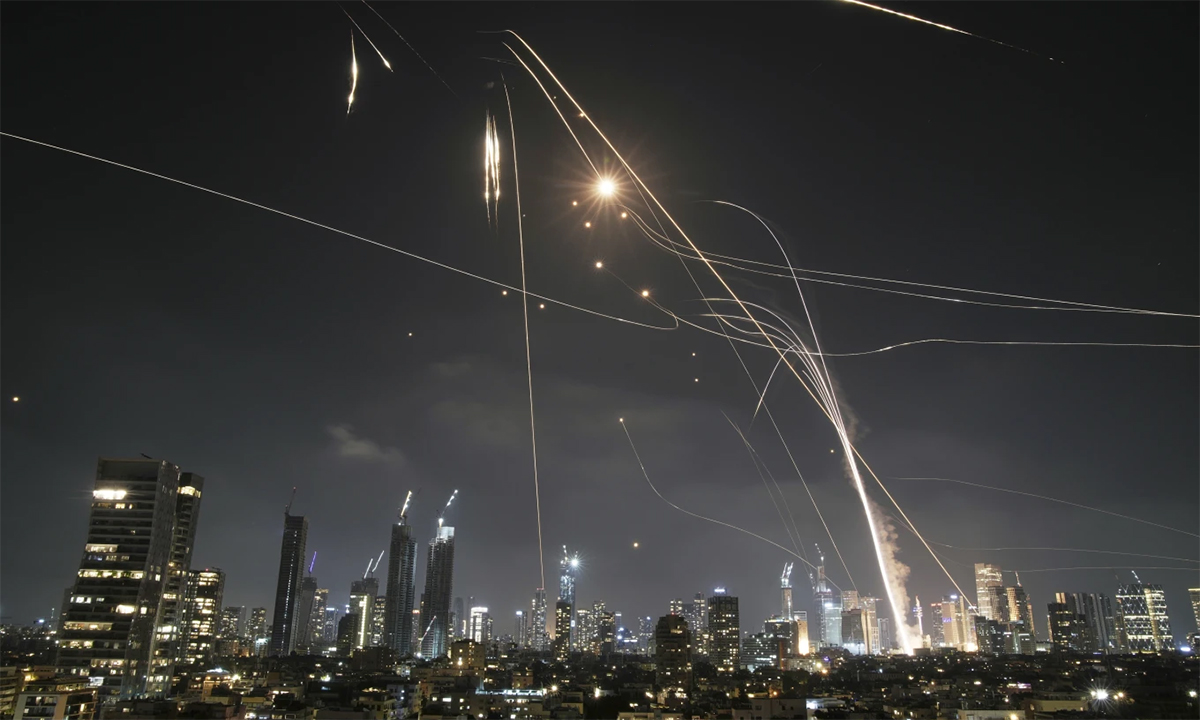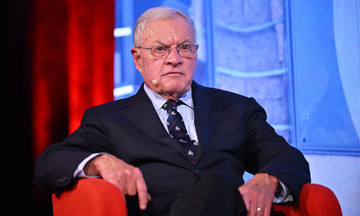The Israel Tax Authority estimated on 26/6 that USD 3 billion is needed to repair infrastructure hit by Iranian missiles and compensate affected local businesses. This figure excludes the cost of repairing and replacing deployed weapon systems, so the total cost could be significantly higher after a complete assessment.
"This is the biggest challenge we face. Israel has never suffered such a high level of damage in its history," Shay Aharonovich, head of the Israel Tax Authority, told reporters.
Israeli Finance Minister Bezalel Smotrich suggested the total cost of the 12-day conflict with Iran could reach USD 12 billion, while Bank of Israel Governor Amir Yaron estimated USD 6 billion. Experts say these figures pose a challenge for the Israeli economy, already strained after nearly two years of conflict.
 |
Israeli air defenses intercept an Iranian ballistic missile on 13/6. Photo: AP |
Israeli air defenses intercept an Iranian ballistic missile on 13/6. Photo: AP
Israel possesses the world's most advanced multi-layered defense network, supported by the US, but its military frequently warns that 10-15% of missiles could penetrate its defenses.
During the 12-day conflict with Iran, Israel's economy was almost entirely shut down, except for essential services. The compensation the Israeli government must pay this time could be double the cost of damage from Hamas and Hezbollah attacks since October 2023.
The Financial Times estimates that Israel also spent about USD 5 billion in the first week of the conflict with Iran. The daily operational cost could reach USD 725 million, including USD 593 million for air strikes and USD 132 million for defense.
The conflict erupted on 13/6 when Israel launched a preemptive air strike against Iran in "Operation Roaring Lion", killing several high-ranking commanders and nuclear scientists. Iran retaliated with "Operation True Promise 3". The fighting killed more than 606 people and injured more than 5,300 in Iran, and killed 28 and injured more than 2,500 in Israel.
On the morning of 22/6, the US intervened in the conflict, bombing three Iranian nuclear facilities and then inviting Tehran to the negotiating table. President Trump announced a day later that Iran and Israel had agreed to a comprehensive ceasefire. Both countries accepted the ceasefire on 24/6, each declaring itself the victor.
Nguyen Tien (Daily Gazette, AFP, AP)












